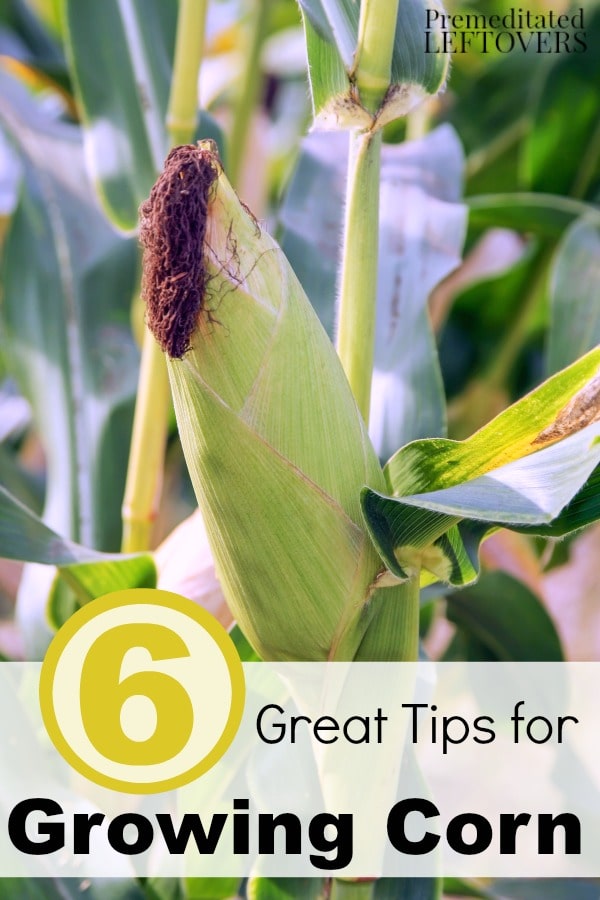Who doesn’t love an ear of ripe, sweet corn! It’s even better if you’ve harvested it from your own backyard! By growing your own corn crop you can make sure your family has enough corn to last all summer, and you get to choose everything that goes into growing the crop. You can grow it 100% organic if you want! To help you grow the best crop possible, here are 6 Great Tips for Growing Corn!
6 Great Tips for Growing Corn
1. Provide Enough Space– If you want to grow better corn, it’s very important that your corn has enough space to grow! In particular, it’s best to grow corn in several short rows instead of one long line (at least 4 rows is ideal). Each corn plant should be about 8 to 12″ apart from the other. This will help them to pollinate each other when the wind blows, and also give them plenty of space to grow strong root systems.
2. Good Soil– Corn needs the right type of soil to grow big, delicious ears of corn. The perfect soil for corn has a pH of 6.0 to 6.8 and should be able to drain well. Corn particularly likes sandy loam soil. If your soil isn’t really corn-ready just yet, consider adding some manure or compost to it. This will give it more nutrients, help it to retain water, and can loosen compact, clay-based soil.
3. Feed Nitrogen – Corn needs nitrogen the whole time it’s growing. Fertilizing it when it’s just planted won’t be enough. To grow better corn, you’ll need to fertilize it two more times. Give it another boost of fertilizer when it’s about 1 1/2 feet high. Then fertilize it again when it grows tassels. A 10-10- 10 fertilizer works well for corn, though you can also go with any fertilizer where the nitrogen content is equal to or greater than the phosphorus and potassium content.
4. Watch for Disease and Pests– Like all plants, corn can fall prey to diseases and pests. Watch out for squirrels and raccoons that try to steal your ears of corn. Also be careful that birds don’t find your corn seeds or young sprouts and eat them! And you’ll also want to check your corn plants for flea beetles, spotted cucumber beetles, and corn earworms. To keep animals away, consider using fencing, netting or brightly colored distracters. To keep insects away, use natural or chemical insecticides.
5. Be Careful with Weeds– If you’re hoping to have your children help you in the garden, make sure to tell them to be careful when weeding the corn. Hoeing or digging too deep to dig up weeds can lead to you accidentally damaging your corn plants’ roots, or even their stalks. A safe solution is to cover the base of your corn plants with mulch to help reduce how many weeds grow.
6. Water Well-Don’t let your corn dry out! If you’re going to grow better corn, then you’ll need to make sure it’s getting enough water. Since corn doesn’t grow deep roots, it easily can be dried out if not enough water is consistently available. So make sure to water often, or consider installing a soaker hose or drip irrigation.
Have you ever grown corn before?
Thanks Savanna for sharing your gardening tips!
More Gardening Tips:
8 Vegetables You Need To Grow in Your Garden
Vegetable Gardening- 10 Resources to Get Your Garden Growing


Leave a Reply